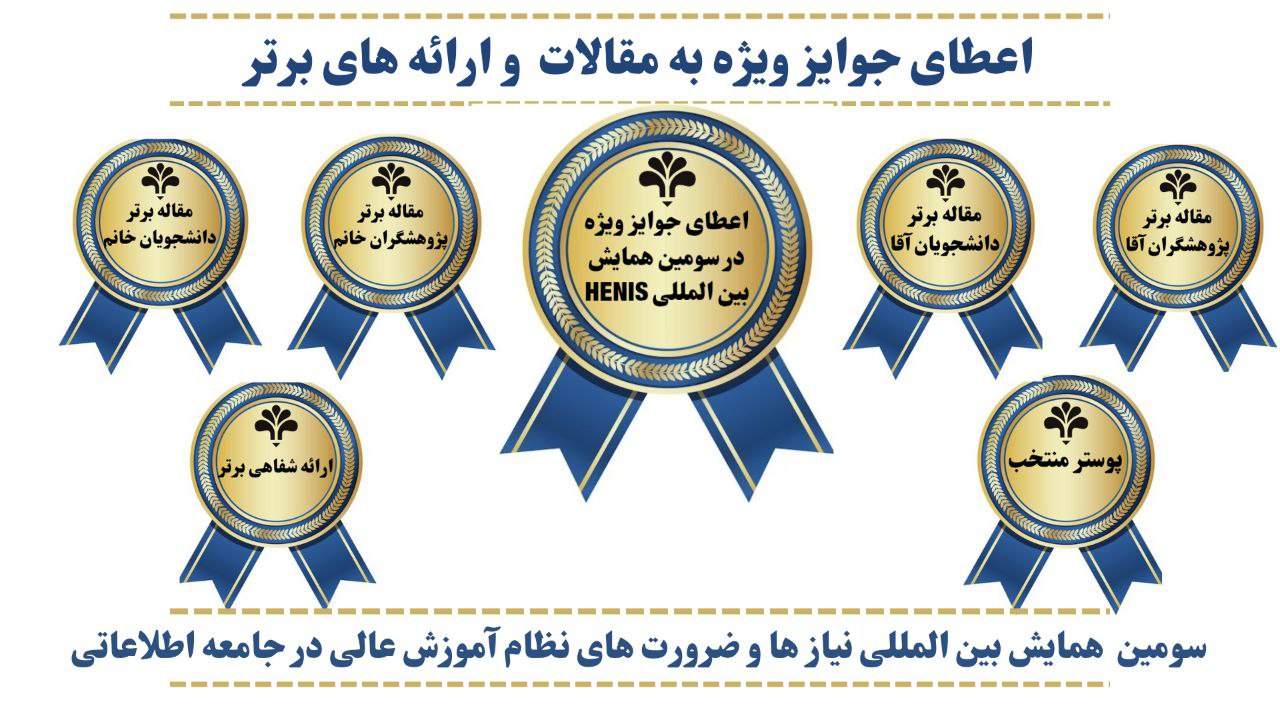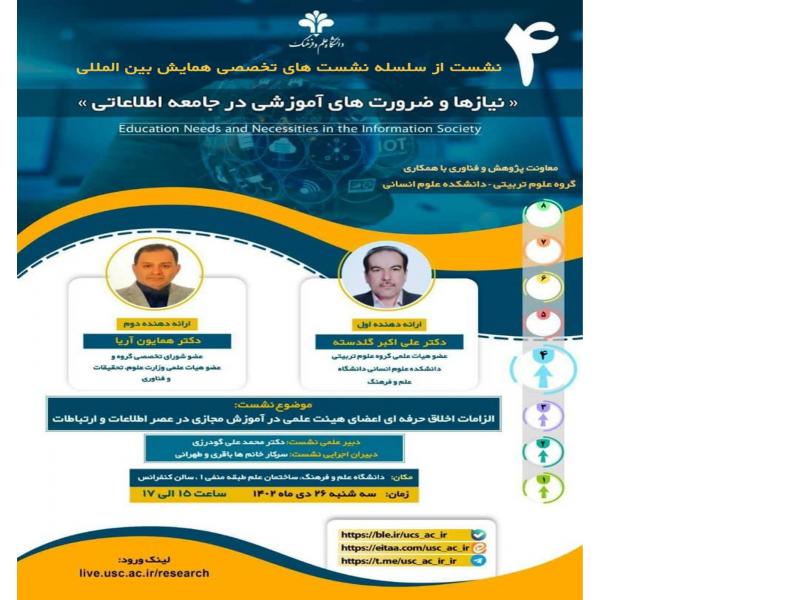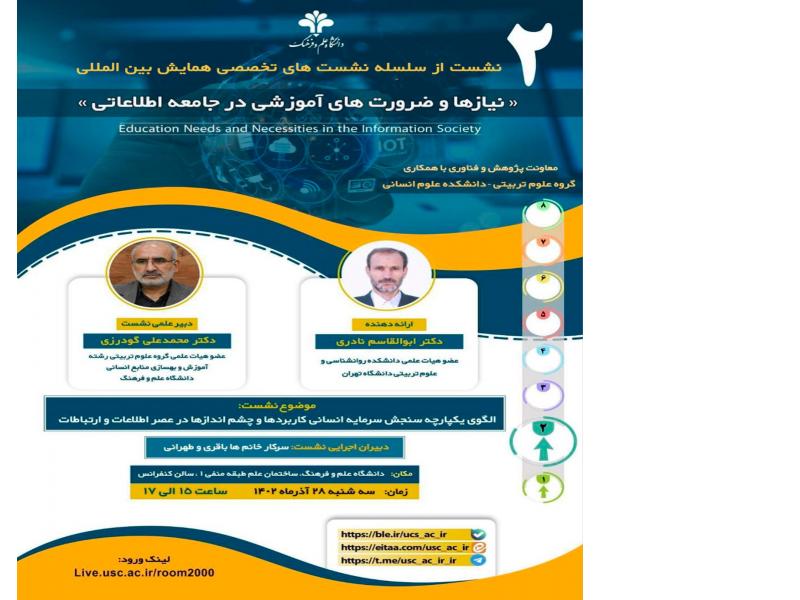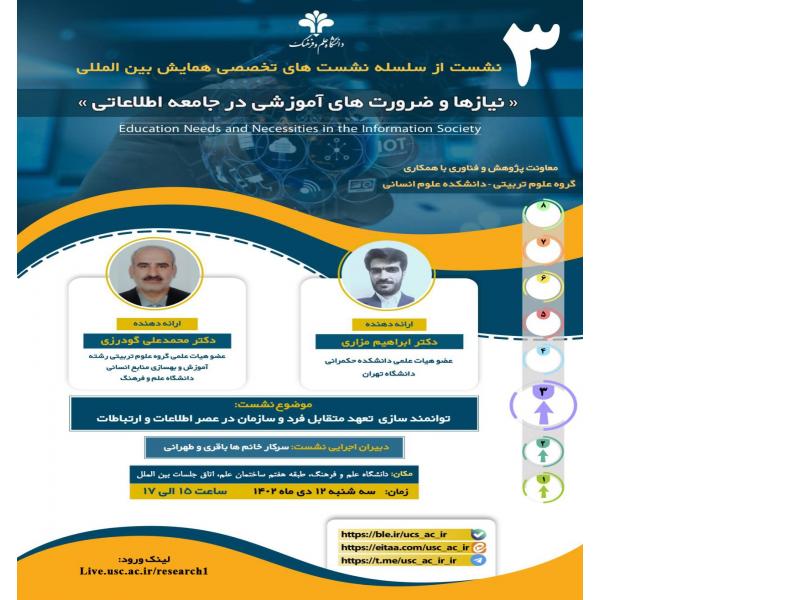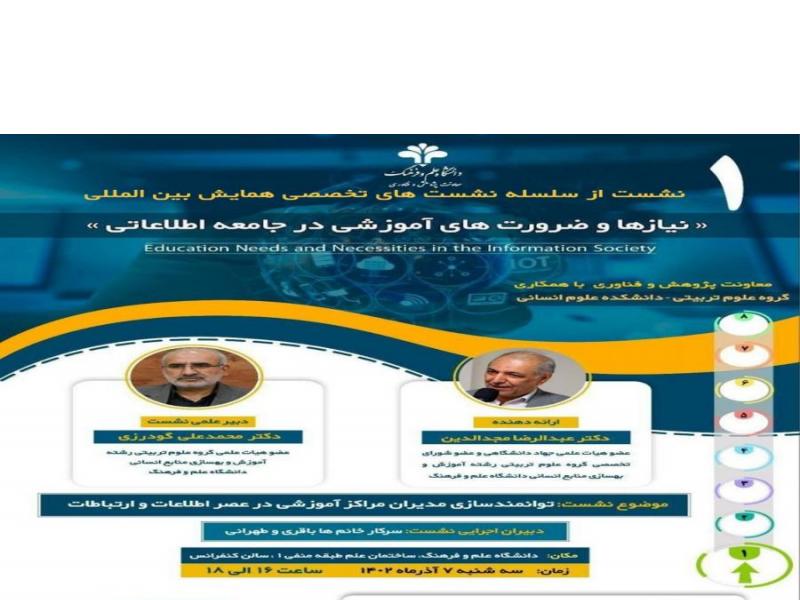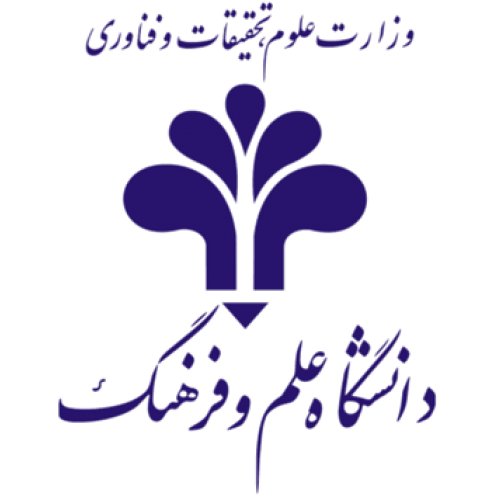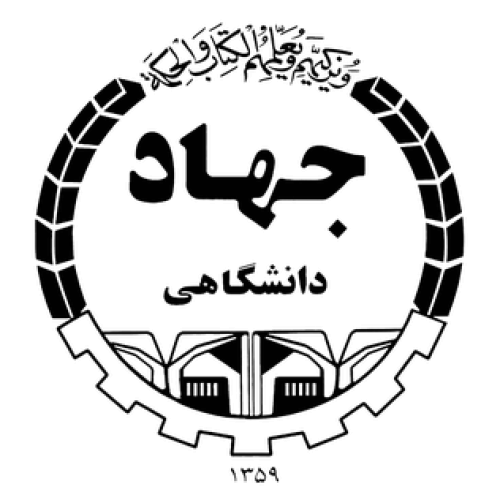-
• شبکه های دانشگاهی و جایگاه دانشگاه های مجازی در جامعه اطلاعاتی
-
• ارزیابی و ارزشیابی الکترونیکی در جامعه اطلاعاتی
-
• یادگیری سیار و منتورینگ در جامعه اطلاعاتی
-
• توسعه و مدیریت آموزش های الکترونیکی در جامعه اطلاعاتی
-
• مهارتها و شایستگی های مورد نیاز فراگیران و مدرسان در جامعه اطلاعاتی
-
• سیاستها، راهبردها، چالش ها و فرصت های آموزش و یادگیری در جامعه اطلاعاتی
-
• نیاز سنجی، طراحی و تدوین، اجرا و ارزشیابی برنامه های آموزشی در جامعه اطلاعاتی
-
• آموزش و اشتغال در جامعه اطلاعاتی
-
• مهاجرت نخبگان (دانش آموختگان) در جامعه اطلاعاتی
-
• آسیب شناسی و آسیب زدایی فرآیندهای آموزشی و پژوهشی در جامعه اطلاعاتی
-
• ارزیابی، اعتبارسنجی و کیفیت آموزشی در جامعه اطلاعاتی
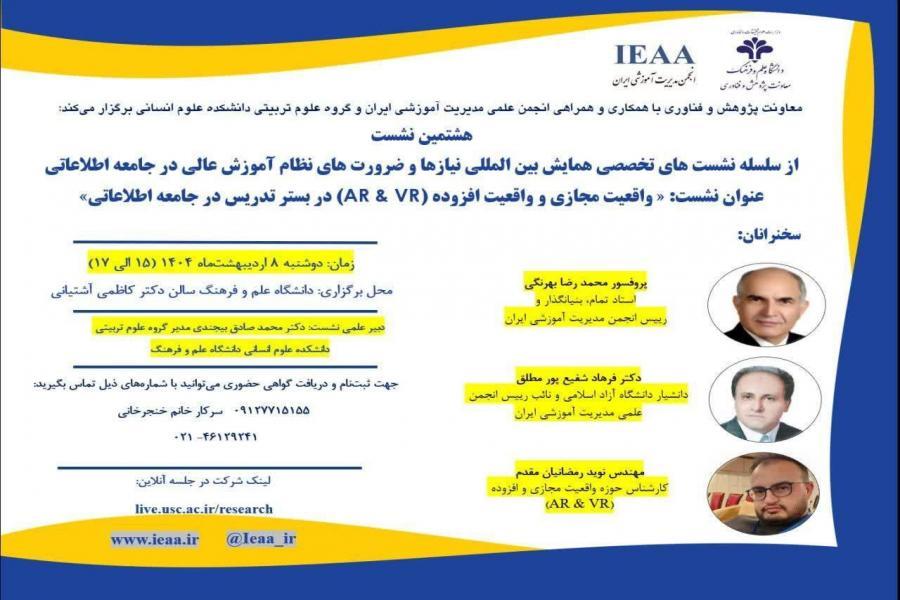
The eighth session of the series of scientific and specialized meetings of the third international conference on "Needs and Necessities of the Higher Education System in the Information Society," titled "Virtual Reality and Augmented Reality (AR & VR) in the Context of Teaching in the Information Society," was held with the participation of:
1. Professor Mohammad Reza Behrangi from Kharazmi University, President of the Iranian Educational Management Association, and member of the specialized council of the Educational Sciences group at Science and Culture University.
2. Dr. Farhad Shafieipour Motlagh from Islamic Azad University of Kashan and Vice President of the Iranian Educational Management Association.
3. Engineer Navid Ramazanian Moghadam, an expert in the field of virtual and augmented reality.
As well as a group of prominent professors, researchers, and experts in various fields.
At the beginning of this session, Dr. Shafieipour considered augmented and virtual reality in the age of artificial intelligence today as a combination of extended reality and the metaverse. Emphasizing the use of adaptive teaching, he highlighted the importance of designing educational spaces and the increasing necessity of personalized learning based on each individual's ability and talent through the use of this technology. He also stressed the necessity of considering the dominance of artificial intelligence in the teaching and learning process and emphasized that learning must reach a level of mastery that is implementable in this new world. However, in this context, the importance and role of humans should not be diminished; rather, humans must be agents and governors of themselves.
The Vice President of the Iranian Educational Management Association then presented a summary of a data analysis model for augmented and virtual reality-based teaching and emphasized the necessity of using artificial intelligence in education. He stated that artificial intelligence can help personalize the learning process and provide educational content tailored to each individual's needs, as well as identify and discover the talents of students.
Following this, Engineer Navid Ramazanian Moghadam discussed the necessities, importance, and educational applications of virtual reality and augmented reality technologies in the teaching and learning process from various perspectives. He requested all experts in this field to pay more attention to its importance and application, focusing on Extended Reality (XR) technologies, which include:
- Virtual Reality (VR): Creating fully immersive environments engaging the senses (e.g., VR headsets).
- Augmented Reality (AR): Adding digital layers to the real environment (e.g., educational applications like "AR packages of textbooks").
- Mixed Reality (MR): Blending VR and AR for dynamic interaction (e.g., HoloLens headsets).
He introduced Extended Reality (XR) technology, stating that it includes Virtual Reality (VR), Augmented Reality (AR), and Mixed Reality (MR). He also pointed out practical examples of this technology in science education in virtual labs for simulating experiences, in the medical field for simulating surgery, anatomy, and nursing education, and in the engineering field for training on industrial machinery and process design, emphasizing personalized learning and increased educational efficiency.
In the continuation of the session, Professor Behrangi, Full Professor at Kharazmi University, President of the Iranian Educational Management Association, and member of the specialized council of the Educational Sciences group at Science and Culture University, presented his valuable points under the title "Transformation in Transformation," offering ten educational steps using a summary table of applications and research opportunities based on virtual and augmented reality.
He believed that artificial intelligence and new technologies such as virtual reality, augmented reality, and mixed reality have high potential for transformation in all fields, especially in humanities, particularly in the context of teaching. However, this transformation is only possible with a deep, critical, and human-centered perspective. Superficial and uninformed use of these technologies can cause serious damage to human research and teaching and learning processes instead of helping. He also referred to the challenges of educational systems, especially higher education, and emphasized the importance of paying attention to the "right to learn" for all learners and students. He defined educational justice as paying attention to individual differences and providing education tailored to the talents and needs of each individual through the use of new technology. He expressed hope that these technologies can help in better management of educational processes and provide personalized education. However, this will only be achieved if the application of artificial intelligence in education and the training of future teachers receive special attention.
Participants in this scientific session discussed the amazing capabilities of virtual and augmented reality technologies in redefining research and teaching methods in various fields. It was a valuable opportunity for professors, teachers, researchers, and students interested in the field of new educational technologies to become familiar with the latest scientific achievements in the fields of virtual reality, augmented reality, and mixed reality, and their impact on teaching management and learning processes. It is worth noting that this session was well-received by professors, students, and teachers, both in-person and virtually.
At the end of the session, the speakers were recognized and thanked with a commemorative plaque presented by the Research and Technology Vice-Presidency of Science and Culture University and the Iranian Educational Management Association.
Time: Monday, April 28, 2025 (15:00 to 17:00)
Location: Science and Culture University, Dr. Kazemi Ashtiani Memorial Hall
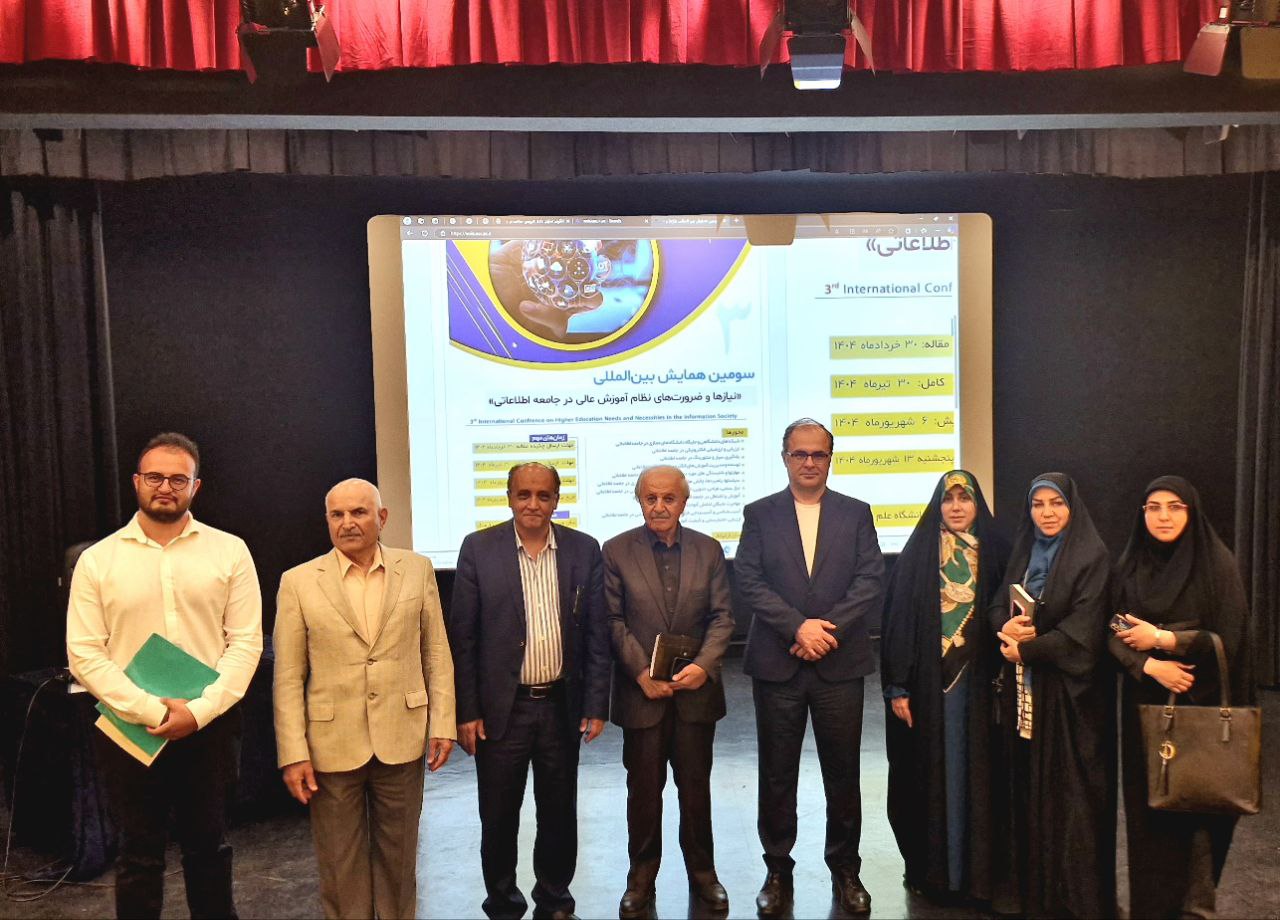

.png)
